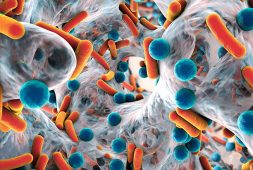
A comprehensive research review has shed light on the detrimental effects of consuming excessive added sugars on our health. The review, published on April 5 in The BMJ, examined data from over 8,600 studies encompassing 73 meta-analyses. It focused specifically on the potential negative health outcomes linked to high consumption of added sugars found in processed foods, beverages, syrups, and juices, excluding naturally occurring sugars in whole fruits and vegetables.
The findings of the review revealed a staggering 45 health issues associated with the intake of added sugars. These problems include but are not limited to asthma, cancer, depression, obesity, and type 2 diabetes.
To mitigate the risk of developing serious health conditions, a recent study suggests limiting added sugar intake to a maximum of 25 grams per day, equivalent to approximately 6 teaspoons. By heeding this recommendation and being mindful of our added sugar consumption, we can take proactive steps towards safeguarding our overall well-being.
“A little sugar in the diet is okay, but the amount of sugar in the typical Western diet tends to be too high to support our health in the long run,” declared Maya Adam, MD. She is a health behavior researcher and clinical assistant professor of pediatrics at Stanford University in California and wasn’t part of the new analysis made.
“Eating too much sugar leads to a collection of problems that aggravate each other,” Dr. Adam added. “Overweight and obesity, diabetes, and heart disease are the first ones we think of, but high levels of dietary sugar also lead to chronic inflammation, and that negatively affects almost all of our body systems.”
Current U.S. Recommendations for Sugar Intake Too High
According to the U.S. Food and Drug Administration (FDA), added sugars encompass various types such as table sugar, artificial sweeteners like Splenda or Sweet-n-Low, sugars found in honey and syrups, and sugars in concentrated fruit and vegetable juices.
In the United States, food labels indicate “total sugars,” which includes both added sugars and naturally occurring sugars in dairy products, whole fruits, and vegetables, as defined by the FDA.
The FDA’s Dietary Guidelines for Americans advise limiting the consumption of calories from added sugars to less than 10 percent of the total daily calorie intake. For instance, if you consume 2,000 calories per day, it is recommended to have no more than 200 calories, approximately 50 grams, of added sugars in all the food and beverages you consume.
However, the researchers note some limitations in the analysis. The included studies used different methods to assess total sugar and added sugar intake, as well as monitor various health outcomes related to sugar. Additionally, the majority of the studies focused on endocrine and metabolic disorders, cancer, and cardiovascular disease, potentially overlooking other health risks.
Despite these limitations, considering the wide range of health issues associated with added sugars, the study authors recommend limiting daily intake to less than 25 grams, equivalent to about 6 teaspoons of table sugar. Furthermore, the research team suggests limiting the consumption of soda and other sugar-sweetened beverages to one serving per week, which is equivalent to a single 12-ounce can of soda.
“While sugar-sweetened beverages may be some of the worst offenders when it comes to added sugars’ negative effect on health, the findings of this study also highlight that it’s not just intake of sugar-sweetened beverages such as soda that is associated with adverse health outcomes, but also total dietary free [added] sugars, which can be found in desserts and other processed foods, as well as honey and fruit juice,” said Brooke Aggarwal, EdD. She is a behavioral scientist and assistant professor at Columbia University Irving Medical Center in New York City. She also wasn’t part of the new analysis.
Reducing Added Sugar in Daily Diet
According to Adam, if you have a craving for sweets, it’s best to obtain sugars in your diet from whole foods and vegetables. Another excellent source of naturally occurring sugars in your diet, as suggested by Adam, is unsweetened dairy and nut milks.
When purchasing packaged foods, Adam advises checking for added sugars, even in products that may not be typically associated with desserts, such as breads, breakfast cereals, and sports drinks. These items can sometimes contain high amounts of added sugars. Adam suggests utilizing food labels to make healthier choices, even if you don’t have the patience to calculate the precise proportion of your daily calorie intake that comes from added sugars.
“Always read the labels on packaged foods — just to know how much sugar they contain,” Adam stated. “If you don’t want to calculate your sugar intake, avoid foods where sugar is one of the first ingredients, including sugar under different names, such as ingredients that end in -ose or any kinds of syrup.”



